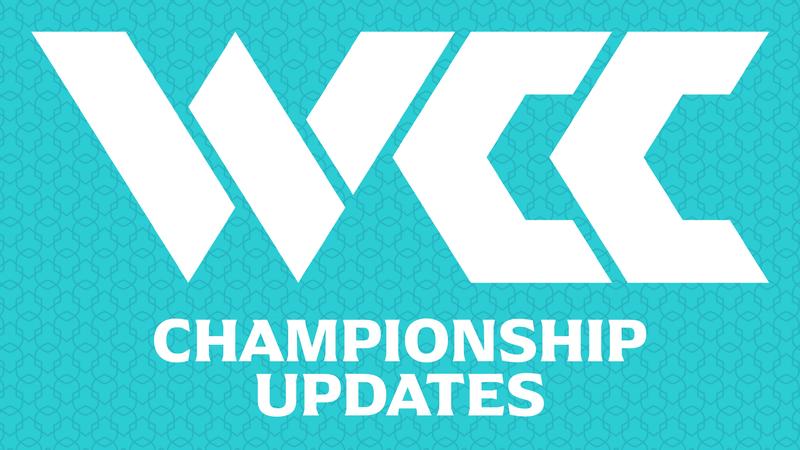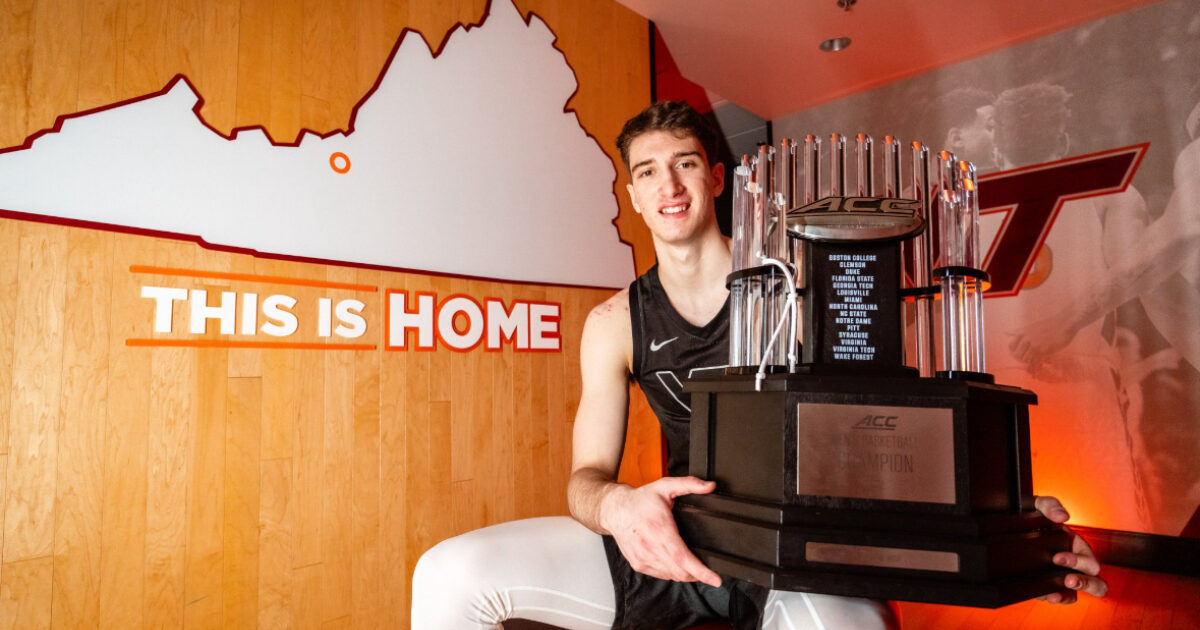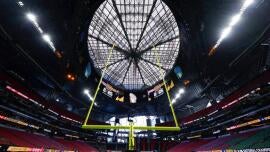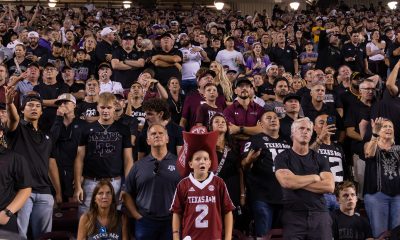NIL
WCC Announces Addition of Conference Tournaments for Men’s and Women’s Soccer, Softball, Beginning in 2026-27
Story Links SAN BRUNO, Calif. — As just announced by the West Coast Conference, the conference Presidents’ Council has approved the Executive Council’s proposals on championships for men’s soccer, women’s soccer and softball. Conference championships in these three sports will begin in the 2026-27 academic year. Men’s Soccer, Women’s Soccer and Softball […]

SAN BRUNO, Calif. — As just announced by the West Coast Conference, the conference Presidents’ Council has approved the Executive Council’s proposals on championships for men’s soccer, women’s soccer and softball. Conference championships in these three sports will begin in the 2026-27 academic year. Men’s Soccer, Women’s Soccer and Softball will now join the likes of Men’s and Women’s Basketball, Baseball, and Beach Volleyball with a head to head postseason conference tournament.
Each tournament will feature the top four finishing teams in the conference regular season. Both men’s and women’s soccer will play a single elimination semifinals with the winner of each semifinal playing the conference title match. Each round of the WCC Men’s and Women’s Soccer Tournament will be hosted by the highest seed. Softball will play in a four team double-elimination round robin tournament all at a single predetermined campus site. As is standard within a majority of Division I College Athletic Conference Tournaments, the conference tournament champion, and no longer the conference regular season champion for men’s and women’s soccer and Softball, will earn the automatic bid into the NCAA postseason.
“We are very excited at the announcement of these new postseason tournaments,” noted Saint Mary’s Vice President for Intercollegiate Athletics Mike Matoso, “So often, our student-athletes have demonstrated their ability to compete and be the best teams in the WCC, and now, they will have another opportunity to demonstrate their abilities and have an even greater chance at competing for National Titles.”
Most recently, Saint Mary’s Baseball won the 2025 West Coast Conference Baseball Tournament, despite finishing third in conference regular season play, earning their second ever berth to the NCAA Tournament. At the tournament, the Gaels were also able to notch their first ever postseason win, upsetting regional host and eighth nationally ranked Oregon State.
#GaelsRise
NIL
Mike Gundy calls for the obvious next step in College Football’s NIL Era
This Summer, College sports underwent one of it’s biggest changes yet when the House Vs NCAA case was finally settled. Among the many changes to the landscape of college sports was the arrival of revenue sharing as programs now have the ability to pay their players directly. NIL payments came from outside parties but, the […]

This Summer, College sports underwent one of it’s biggest changes yet when the House Vs NCAA case was finally settled. Among the many changes to the landscape of college sports was the arrival of revenue sharing as programs now have the ability to pay their players directly. NIL payments came from outside parties but, the athletes are now cut in on the money the schools are earning for the first time ever.
Revenue Sharing arriving in College Football will only help calm some of the chaos with NIL as it gives schools a clear path to money which will help some of the schools without the massive boosters. Each NIL deal now needs to be cleared by a third party which will help ensure that NIL is being used the way it’s supposed to be rather than teams just buying players.
In order to keep some of the chaos under control in College Sports, many have called for the sport to start using collective bargaining as the professional leagues do. While that change hasn’t arrived at the college level yet, it could be the next massive shift in the near future.
This week while attending Big 12 Media Days, Mike Gundy appeared on The Andy & Ari On3 Podcast where he called for everyone to finally restructure and admit that the athletes are now employees this way the College model can start to match the NFL model.
“You’ve gotta restructure your systems and admit players are employees, then you can build collective bargaining. We’ve all talked about it. But you have to admit they’re employees. You can do it all. You can have a [salary cap] and you need an entry level for a high school player coming in because it’s not sustainable.”
Mike Gundy
Given the recent events in college athletics, Mike Gundy’s sentiment has never been more true but, changes may be far down the line. When the athletes were receiving NIL payments, they weren’t technically employees of the school as other outlets were paying them but, after the House Settlement brought revenue sharing into College Football, the schools now directly pay their athletes.
Everyone saw with the House Vs NCAA Settlement how long these cases and changes take to clear the courts and then actually get implemented by the NCAA. It’s clear that athletes should now be considered employees like in every other sport where the players get paid but, every party involved may not want to push for the changes.
More Oklahoma State Cowboys News:
NIL
2026 NBA Draft Could Be Historic for Virginia…
Since the NBA Draft shrunk to two rounds, Virginia Tech has never had two players selected in the draft. Prior to that, the Hokies only had two players selected in the top 60 (the equivalent size of today’s draft) of the same draft once in 1986 when Dell Curry was selected 15th overall by Utah […]

Since the NBA Draft shrunk to two rounds, Virginia Tech has never had two players selected in the draft. Prior to that, the Hokies only had two players selected in the top 60 (the equivalent size of today’s draft) of the same draft once in 1986 when Dell Curry was selected 15th overall by Utah and Keith Colbert was selected 56th overall by Philadelphia. Bobby Beecher was also selected 91st overall by Sacramento during that draft.
That could change in 2026 with Neoklis Avdalas being on the first round radar and Tobi Lawal being a potential second round pick.
Let’s start with Avdalas who has already been listed by many as a name to the watch in the 2026 NBA Draft.
NIL
LSU Football Lands Top-Ranked 2026 Recruit Over Texas A&M, Texas, Miami
Great news, Tiger fans. Five-star high school recruit Lamar Brown, a defensive tackle, has committed to Louisiana State University, he announced on SportsCenter on Thursday afternoon. The sought-after prospect had been choosing between a final four of Texas, Texas A&M, Miami and LSU. Brown kept viewers on their toes by opening his remarks by giving […]

Great news, Tiger fans.
Five-star high school recruit Lamar Brown, a defensive tackle, has committed to Louisiana State University, he announced on SportsCenter on Thursday afternoon. The sought-after prospect had been choosing between a final four of Texas, Texas A&M, Miami and LSU.
Brown kept viewers on their toes by opening his remarks by giving thanks to God and his support system, but soon moved on to the big announcement.
“Hard choice, but I decided to do it. With that being said, for the next three to four years, I’ll be committing to Louisiana State University.”
After briefly donning an oversized LSU hat, the DT unzipped his jacket to reveal a Tigers jersey, further signifying his commitment.
Watch that fun moment below:
5
recruit Lamar Brown and No. 1 prospect on the @SCNext 2026 ESPN 300 commits to LSU
pic.twitter.com/1reCNjMP47
— SportsCenter (@SportsCenter) July 10, 2025
Brown, who is from Louisiana, is the No. 1 prospect on the ESPN 300 for 2026. He is also the third five-star to commit to the Tigers for the 2026 cycle, including defensive tackle Richard Anderson and wideout Tristen Keys.
More College Football on Sports Illustrated
NIL
Bueckers Is NIL Store’s Top-Earning Female for 15th Straight Month
CHICAGO (July 10, 2025) – For the 15th consecutive month, UConn’s Paige Bueckers was the top-earning collegiate female athlete on the NIL Store. Joining Bueckers as June 2025 leaders were Duke’s Cooper Flagg as the top-earning male athlete, and the University of Connecticut as the top-selling school. The NIL Store supports more than 25,000 athletes […]

CHICAGO (July 10, 2025) – For the 15th consecutive month, UConn’s Paige Bueckers was the top-earning collegiate female athlete on the NIL Store.
Joining Bueckers as June 2025 leaders were Duke’s Cooper Flagg as the top-earning male athlete, and the University of Connecticut as the top-selling school. The NIL Store supports more than 25,000 athletes and 115 institutions nationwide.
June marked the end of Bueckers’ illustrious NIL Store run as a collegiate representative with the 2024-25 academic calendar officially coming to a close.
Bueckers’ gear will remain available for sale, however, thanks to the NIL Store’s partnership with the WNBPA which provides WNBA athletes a platform to earn proceeds on their collegiate gear.
Bueckers’ collegiate legacy gear is available alongside other WNBA legends including Kelsey Plum, Breanna Stewart, Brittney Griner, Angel Reese, Alyssa Thomas and more.
June ’25 Top-Selling Schools
-
UConn
-
Arkansas
-
UCLA
-
Duke
-
Louisville
-
Tennessee
-
Syracuse
-
LSU
-
Texas Tech
-
Florida
June ’25 Top-Earning Male Athletes
-
Cooper Flagg – Duke Men’s Basketball
-
Gage Wood – Arkansas Baseball
-
Roch Cholowsky – UCLA Baseball
-
Wehiwa Aloy – Arkansas Baseball
-
Kade Anderson – LSU Baseball
-
Kiyan Anthony – Syracuse Men’s Basketball
-
Liam Doyle – Tennessee Baseball
-
Blake Balsz – UCLA Baseball
-
Steve Angeli – Syracuse Football
-
Roman Martin – UCLA Baseball
June ’25 Top-Earning Female Athletes
-
Paige Bueckers – UConn Women’s Basketball
-
Azzi Fudd – UConn Women’s Basketball
-
Karlyn Pickens – Tennessee Softball
-
NiJaree Canady – Texas Tech Softball
-
Sarah Strong – UConn Women’s Basketball
-
Bri Ellis – Arkansas Softball
-
KK Arnold – UConn Women’s Basketball
-
Jordan Woolery – UCLA Softball
-
Hailey Toney – Texas Tech Softball
-
Megan Grant – UCLA Softball
ABOUT CAMPUS INK AND THE NIL STORE
Backed by Mark Cuban, Campus Ink expanded into the Name, Image, Likeness (NIL) space in 2021 and launched the NIL Store which serves as a merchandising solution for student-athletes and schools across the country. The NIL Store operates with the firm belief that every student-athlete has an opportunity to capitalize on their NIL and should earn industry-leading payouts. Campus Ink was founded in 1947 on the campus of the University of Illinois and was reimagined in 2015 with an office in downtown Chicago and a production facility in Urbana, Ill., where the company handles all of its own production and fulfillment.
NIL
Colleges withholding revenue-sharing contract details: How schools can remain tight-lipped on player payments
As of July 1, college athletes are being directly paid by the universities for which they play, but that doesn’t mean the schools are divulging the payments on the record. Through reporting, we know the numbers on the high end are going up. Duke quarterback Darien Mensah will earn $4 million per year for a […]

As of July 1, college athletes are being directly paid by the universities for which they play, but that doesn’t mean the schools are divulging the payments on the record.
Through reporting, we know the numbers on the high end are going up. Duke quarterback Darien Mensah will earn $4 million per year for a two-year deal at Duke. Five-star offensive line prospect Felix Ojo has a three-year deal averaging $775,000 a year with a verbal understanding that TTU will renegotiate up to $5 million. Basketball star AJ Dybantsa had an approximate asking price of $5 million before signing with BYU.
But schools do not publicly disclose amounts of revenue-sharing deals voluntarily, and whether they will ever be compelled to do so is unclear. In that way, the post-House v. NCAA settlement world is just like what came before in the era when athletes were being compensated by third-party NIL collectives.
Why are schools silent on revenue-sharing deals?
CBS Sports filed more than a dozen freedom of information requests for the revenue-sharing contracts of high-profile college football players across the country. As of publication time, six schools have provided responses — all of which were denials. Context for the denials runs the gamut.
Alabama responded to a request for QB Ty Simpson and WR Ryan Williams’ contracts by simply saying, “there are no public documents responsive to your open records request[.]” Florida declined to disclose QB DJ Lagway’s contract, stating that athletic records are exempt from Florida’s public records laws. In the past, however, Florida has shared coaching contracts with reporters.
Other schools have different justifications. Clemson denied a request made by The Post and Courier, stating that the agreements are “proprietary,” and that releasing them would put the Tigers at a competitive disadvantage. Colorado denied a request by CBS Sports for the contracts of QBs Julian Lewis and Kaden Salter, citing a state law that allows the university to “deny inspection of any name, image, or likeness contract containing personally identifiable information for any of our student athletes.” The law was signed in March by governor Jared Polis, and in his signing statement, he expressed reservations about a lack of transparency.
“While I support the bill and its goals, there are issues regarding transparency that were not addressed during the legislative process that I would like to see addressed in the future,” Polis wrote. “In particular, I have concerns about the bill’s new Colorado Open Records Act (CORA) exception regarding student-athlete contracts. While the bill’s exception is narrowly tailored, it follows an unfortunate trend of legislative proposals that ultimately impede access to official records that are arguably within the public’s interest to view. These exceptions move transparency in the wrong direction and any other proposals that further prevent or delay public access to information will be carefully reviewed.”
The bill’s sponsor, state senator Judy Amabile (who represents Boulder), told The Denver Post that the fact that athletes are not employees was the main factor in keeping the deals private.
“They’re not being paid with public money,” Amabile said. “They’re students, and students have protections, and we wanted to preserve that.”
What is NIL Go? Explaining the College Sports Commission’s initiative to monitor name, image and likeness
Will Backus

Schools have used FERPA to shield records since NIL payments were allowed in 2021. Utah has an NIL bill with similar shielding from the public, passed in early 2024, and governor Spencer Cox at the time said: “We’re at a big competitive disadvantage if other states aren’t required to release the terms of those contracts,” … “And as much as I’d like to get rid of all this, I do support the bill. I think it’s the right thing to do, put us on a level playing field and, especially because it involves young people and minors, I think it’s OK.”
The law passed after The Deseret News requested athlete NIL agreements in July 2023 via records request. The five state schools denied the request, stating that the contracts are “education records” and saying they are protected by the federal Family Education Rights and Privacy Act (FERPA). But, in October 2023, a Utah state records committee unanimously ruled that NIL agreements are not education records and should be disclosed due to the public nature of the athletes. The schools appealed to state court, and while the decision was still pending, the state passed the law shielding all deals from the public and a judge. A district court judge found that the law was retroactive and dismissed The Deseret News’ case.
UCLA, South Carolina and Florida State each cited FERPA in their denials of CBS Sports’ requests for athlete revenue-sharing agreements.
“[I]ndividual students’ NIL licensing contracts are confidential and exempt from disclosure pursuant to [FERPA] which defines an “educational record” as a record which is (1) “directly related to a student” and (2) is “maintained by an educational agency or institution or by a party acting for the agency or institution,” Florida State stated in its response. “Individual students’ NIL licensing agreements fall squarely within the definition of an “educational record” as defined by FERPA, and FSU therefore cannot release revenue sharing contracts for any student to the public without violating FERPA.”
But, is the school’s interpretation of FERPA too broad? It’s a complicated question that may lead to more legal challenges in the future, according to Robert Romano, a sports law professor at St. John’s University.
“That’d be up to a judge to decide whether or not it is or it isn’t. As of right now, they’re using it and are using it successfully,” Romano said. “I think what they’re scared of is if they release this information and the judge or the Department of Education finds out they did it in violation of the FERPA rules and regulations, they can risk federal funding. And I think that’s the issue right now. All the schools are scrambling. With everything that’s happening in this new administration, with regards to federal funding, they want to make sure that they’re not doing anything that steps over the line or could expose them to the possibility of losing any additional funding that the federal government provides, and if they release some information that could be interpreted as in violation of FERPA, well, they’re exposing themselves.”
Romano said that it would be “perfectly fine” for a school to send a revenue-sharing agreement without any identifying information, even an athlete’s name, but they choose not to do that. An issue with any legal challenge for an athlete’s records is the time it would take to fulfill. College athletics is transient, and by the time a case and its appeals work its way through a court system, a football player might be in the transfer portal or in the NFL.
So, for now, as payments to athletes increase, so will the secrecy around what they’re being paid.
NIL
Jason Caldwell’s Friday mailbag column
Greg1716: What 1 or 2 rules changes would Jason Caldwell like to see in college football? How involved – if any – is the coaching staff with data/analytics with regards to game planning, game management, roster management etc. And given the NFL is moving rapidly into incorporating and using AI now to develop analytic models […]

Greg1716: What 1 or 2 rules changes would Jason Caldwell like to see in college football? How involved – if any – is the coaching staff with data/analytics with regards to game planning, game management, roster management etc. And given the NFL is moving rapidly into incorporating and using AI now to develop analytic models would Auburn experiment with any AI?
I really haven’t thought much about it in terms of actual football being played. Mine would mostly be on the payment side of things and trying to fix that. I think they need to move to employer/employee status and having contracts if we’re going to continue paying athletes like this. Hopefully this new system will actually hold up because that would help. Auburn uses analytics in every sport. Not sure exactly how it works with football other than tendencies, scouting, etc.
-

 Technology2 weeks ago
Technology2 weeks agoPet fitness and wellness trends for a healthier and happier dog
-

 College Sports2 weeks ago
College Sports2 weeks agoWAC to Rebrand to UAC, Add Five New Members in 2026
-

 Motorsports2 weeks ago
Motorsports2 weeks agoWhy Cosmetics are Making Up for Lost Time in Women’s Sports
-

 College Sports3 weeks ago
College Sports3 weeks agoAlabama Basketball
-

 Professional Sports3 weeks ago
Professional Sports3 weeks agoFrancis Ngannou sends Dana White a message following Jon Jones' shock UFC retirement
-

 College Sports2 weeks ago
College Sports2 weeks agoA new era of Dickinson hockey begins behind the bench – The Dickinson Press
-

 Sports3 weeks ago
Sports3 weeks agoSEC Conference imposing a fine will create the opposite effect.
-

 Health2 weeks ago
Health2 weeks agoFlorida assault survivor shares hope for change with new mental health law
-

 Motorsports2 weeks ago
Motorsports2 weeks agoNASCAR This Week – Patriot Publishing LLC
-

 Youtube2 weeks ago
Youtube2 weeks agoFunniest MLB rain delay moments











 ‘Make your shots!’
‘Make your shots!’  | First Take
| First Take




















